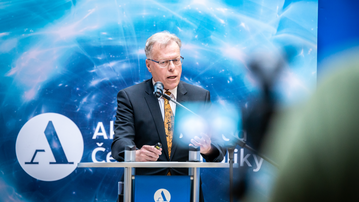
Life without oxygen changes the structure of mitochondrial proteins
Research performed by two laboratories of the Faculty of Science, Charles University, at the BIOCEV center – the Laboratory of Molecular and Biochemical Parasitology led by Jan Tachezy and the Laboratory of Structural Biology represented by Daniel Rozbeský – has shown how the evolutionary adaptation of eukaryotic cells to life without oxygen changes the basic properties of proteins essential for the biogenesis and function of mitochondria.
A new study published in the journal Current Biology points to three types of functional modifications of protein complexes in the intermembrane space of mitochondria of anaerobic protozoa of various evolutionary lineages, including important human parasites. The research led by Jan Tachezy has long focused on uncovering functional adaptations of organelles such as mitochondria and peroxisomes that enable parasitic protozoa to infect and inhabit environments with reduced oxygen tension.
Link to publication: HERE
Contact: tachezy@natur.cuni.cz












